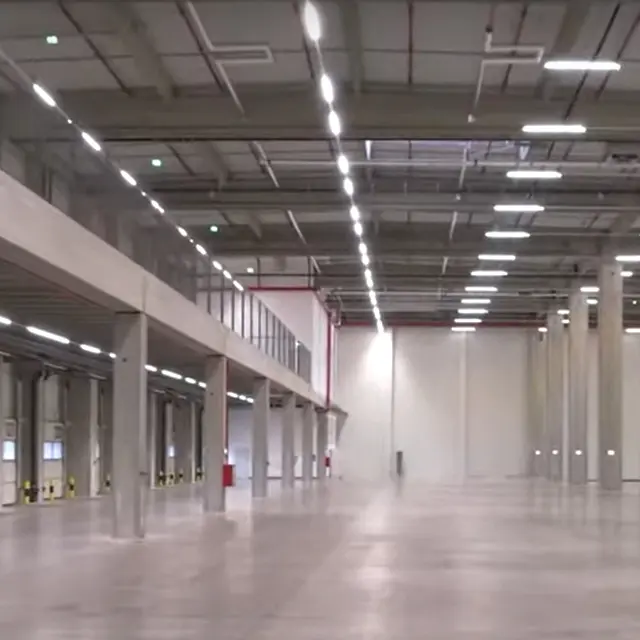Smart lighting systems offer a powerful solution to reduce energy costs in your commercial or industrial space. This article explores how integrating these systems can maximize efficiency and save energy. We'll cover the benefits of smart lighting, implementation steps, and the role of licensed electrical contractors in the process. Learn how businesses across various trades can leverage management software and innovative light fixtures to optimize operations and cut expenses.
Features of Modern Smart Lighting Technology
Modern smart lighting technology offers a range of features designed to enhance energy efficiency and safety in commercial and industrial spaces. These systems are equipped with advanced sensors that detect occupancy and ambient light levels, automatically adjusting illumination to reduce standby power consumption. Some smart lighting solutions even incorporate thermography capabilities, allowing you to monitor electrical cable temperatures and identify potential safety hazards before they escalate.
Differences Between Commercial and Industrial Lighting Needs
When considering smart lighting systems, you'll find that commercial and industrial spaces have distinct needs. Commercial settings, like offices, typically require more nuanced lighting control for employee comfort and productivity, often integrating with building management systems. Industrial environments, such as warehouses, prioritize safety and efficiency, with lighting systems designed to work in tandem with electric motors and automation processes. An industrial electrical company can help you tailor your lighting solution, ensuring it meets the specific demands of your facility while maximizing energy savings.

Benefits of Integrating Smart Lighting for Energy Efficiency
Integrating smart lighting systems can significantly boost energy efficiency in your commercial and industrial spaces. You'll discover how automated controls reduce energy consumption, adaptive lighting enhances productivity, and efficient systems lower operational costs. With the help of an electrical contractor, you can implement these low-voltage solutions to optimize your electric power usage and potentially increase your industrial electrical services' value.
Reducing Energy Consumption with Automated Controls
Automated controls in smart lighting systems can significantly reduce your energy consumption by leveraging advanced software and sensor technology. You can program these systems to adjust lighting based on occupancy, time of day, and natural light levels, ensuring that you only use energy when and where it's needed. This intelligent approach to lighting management not only conserves energy but also extends the lifespan of your lighting fixtures, reducing maintenance costs and improving overall workplace efficiency.
Enhancing Productivity Through Adaptive Lighting
Adaptive lighting solutions can significantly boost productivity in your commercial and industrial spaces. By adjusting light intensity and color temperature throughout the day, you mimic natural light patterns, helping to regulate your employees' circadian rhythms and improve alertness. A licensed electrician can install smart lighting systems that integrate with your existing data infrastructure, ensuring seamless operation. These advanced solutions can even support specialized tasks like welding by automatically adjusting light levels to reduce glare and eye strain, enhancing both safety and efficiency in your workplace.
Lowering Operational Costs with Efficient Systems
By implementing efficient smart lighting systems, you can significantly lower your operational costs in manufacturing and industrial settings. These systems reduce energy consumption, extend bulb life, and minimize maintenance needs, directly impacting your bottom line. Your industrial electrical contractor can help you navigate Department of Labor regulations while integrating these systems, ensuring compliance and maximizing energy savings. With improved efficiency, you may even see a reduction in your liability insurance premiums, making smart lighting a smart investment for your business.

Steps to Implement Smart Lighting Solutions
To implement smart lighting solutions effectively, you'll need to assess your existing electrical infrastructure, select appropriate products, plan system integration, and collaborate with skilled electrical contractors. This process involves understanding California's regulations, considering arc flash safety, implementing controls, and ensuring proper journeyman training. Let's explore each step to maximize energy efficiency in your commercial or industrial space.
Planning Integration with Building Systems
When planning smart lighting integration with your building systems, consider how it will interact with your existing industrial electrical work. You'll need to ensure compatibility with your current bus system and tools used for control and monitoring. Work with your electrical company to assess the integration points, such as connecting the lighting system to your building management software or energy management system. This step is crucial for maximizing energy savings and operational efficiency across your entire facility.
Collaborating With Electrical Contractors for Installation
When implementing smart lighting systems, you should collaborate with experienced industrial electrical contractors. These professionals, often members of trade associations, possess the expertise to navigate complex installations involving pipes, wiring, and industrial electricity. By partnering with skilled contractors, you ensure your workforce benefits from a properly installed, efficient lighting system that meets all safety standards and maximizes energy savings.
The Role of Electrical Contractors in Smart Lighting Integration
Electrical contractors play a crucial role in integrating smart lighting systems for energy savings in your commercial and industrial spaces. Their expertise in commercial electrical systems, including security and programmable logic controllers, ensures compliance with safety standards. You'll benefit from their knowledge in retrofitting existing structures and providing ongoing maintenance. These professionals help you maximize efficiency while meeting your specific customer needs.
Expertise in Commercial Electrical Systems
Electrical contractors bring essential expertise in commercial electrical systems to your smart lighting integration project. You'll benefit from their in-depth knowledge of industrial control systems and programmable logic, ensuring seamless integration with existing infrastructure. Their experience extends to air conditioning systems, allowing for coordinated energy management across your facility. These professionals can efficiently navigate complex electrical installations, from junction box placements to intricate wiring layouts, maximizing the effectiveness of your smart lighting solution while adhering to safety standards and energy efficiency goals.
Ensuring Compliance with Safety Standards
Electrical contractors play a crucial role in ensuring your smart lighting system complies with safety standards. They assess your electrical equipment, addressing potential issues before they escalate. You'll benefit from their expertise in instrumentation and their ability to coordinate with your general contractor. Their education and experience enable them to navigate complex regulations, ensuring your lighting system meets all safety requirements while maximizing energy efficiency.
Providing Ongoing Maintenance and Support
When you integrate smart lighting systems, ongoing maintenance and support from electrical contractors are crucial for long-term efficiency and safety. You'll benefit from regular inspections that identify potential issues like voltage drops or faulty fuses, preventing costly downtime. These professionals can adjust your system to maintain optimal visibility while minimizing energy consumption, ensuring your commercial electrical work continues to deliver maximum value. By including maintenance services in your contract fee, you'll secure expert support to keep your smart lighting system operating at peak performance.

Energy Savings Achieved in Manufacturing Facilities
In manufacturing facilities, you can achieve significant energy savings by implementing smart lighting systems that adapt to your production schedules and electrical design. By integrating sensors and capacitors into your lighting infrastructure, you'll optimize energy consumption based on occupancy and natural light levels. For example, an electronics manufacturing plant reduced its energy usage by 40% after installing smart lights that automatically dim or turn off when production lines are inactive. Contact an experienced electrical contractor to assess your facility's wall and ceiling layouts, ensuring the most efficient placement of smart lighting components.
Improved Safety and Efficiency in Warehouses
You'll find that smart lighting systems significantly improve safety and efficiency in warehouses. By implementing motion sensors and adaptive lighting controls, you reduce energy consumption while enhancing visibility in critical areas. An energy audit conducted by a licensed commercial electrical services provider can identify opportunities for optimization. Through their experience and apprenticeship programs, these professionals ensure proper installation and maintenance of smart lighting solutions, leading to improved worker safety and operational efficiency.
Meeting Sustainability Goals in Large Enterprises
When integrating smart lighting systems in large enterprises, you can meet sustainability goals by focusing on efficient design and precise control. By working with a skilled electrical contractor, you'll implement systems that optimize ampere usage and reduce energy waste through intelligent wiring configurations. These systems can adjust lighting frequency based on occupancy and natural light levels, significantly lowering your energy consumption. Your contract with the electrical service provider should include regular maintenance to ensure the system continues to operate at peak efficiency, helping you consistently meet and exceed your sustainability targets.
Conclusion
Smart lighting systems offer significant benefits for commercial and industrial spaces, including enhanced energy efficiency, improved productivity, and reduced operational costs. By integrating automated controls, adaptive lighting, and efficient systems, businesses can achieve substantial energy savings while creating safer and more comfortable work environments. Implementing these solutions requires careful planning, collaboration with skilled electrical contractors, and ongoing maintenance to ensure optimal performance and compliance with safety standards. With the potential for significant return on investment and the ability to meet sustainability goals, smart lighting integration is a crucial strategy for businesses looking to maximize efficiency and stay competitive in today's energy-conscious market.